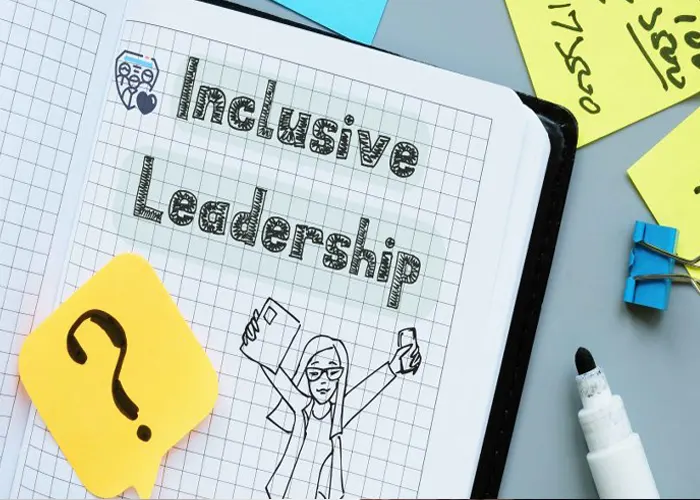By – Sumit Sahini
Updated on Tue, June 21, 2022 
In the last few years, driven by the pandemic, organizations have had to relook at the way they work. Most organizations have adopted a hybrid work policy . Though hybrid working offers multiple benefits to the employees and to the organizations, it also has an impact on the level of inclusion vis-à-vis each individual employee. Our work with several clients has indicated that as organizations continue to adopt a hybrid way of working, one of the most critical challenges the they will face is to create a culture of inclusion. Given that most of the large employee base is managed by the middle managers of the organization these managers play a critical role in fostering that culture. Fostering a culture of inclusion requires every middle manager to ensure that no employee gets left behind, everyone feels included, everyone is given an equal opportunity to progress and that every employee feels connected with the organization. While working with middle managers to create an inclusive culture we have identified 3 specific issues that they need to deal with:
- Equity Gap: Hybrid working has increased the prevalence of equity gap in organizations. One way this is happening is that hybrid working requires employees to be more technologically savvy. However every employee may not be operating with the same level of technological savviness and even if they have the right skills, they may not have the right supporting infrastructure to support hybrid working. This equity gap becomes even more enhanced particularly if there is a new employee joining the organization because this new employee needs to build relationships, understands their role, manage and get the work done in a hybrid environment. This equity gap can also further alienate certain types of employees who maybe a bit more reserved or who may be part of minority groups.
- Proximity Bias: The second key issue related to inclusion in hybrid working is the concept of proximity bias. Simply put, proximity bias exists when a manager develops a higher level of rapport with those set of team members that she or he interacts with most frequently. This can unconsciously create a bias in the manager’s mind regarding the level of competence of the individual. So for an example if there is a part of the team which is coming to office more frequently than some other team members, it is likely that the manager will form deeper bonds with those coming to office more regularly. This can lead to bias against the team members working remotely. There are therefore chances that the low proximity leads to an impression of low effort and competence for the team members working remotely.
- Psychological Safety: Psychological safety is described as having an environment in which the team members find it easy to disagree with their manager/ or other team members without any fear of retribution or reprimand. The environment for psychological safety requires a strong speak up culture where team members feel that they can share a different perspective and the manager has the right degree of maturity to accept diverse points of views. Psychological safety was always an issue in most teams prior to the pandemic but because of the hybrid working the issue of psychological safety has become even more critical. This is because very frequently hybrid working teams can encounter a situation that employees who are working from home or from a remote location may find it more harder to disagree with the team or with their manager. Therefore what we are realizing is that managers have to become a lot more intentional about creating a psychologically safe environment in their teams. This requires deliberate effort.
So what can organisations do to manage these 3 issues? Whereas organisations can create an inclusive and psychologically safe organization climate, we feel it is equally critical for them to empower and train their middle managers around these 3 areas. We believe that it is critical for organizations to train their middle level managers on the following:
- Being aware that these 3 issues are a possibility in a hybrid working environment. Just building awareness starts creating a supportive environment.
- It is very critical that managers are trained on certain deliberate techniques and tools that they can use to avoid these 3 issues because in the current environment unless we are consciously including a person we may be unconsciously excluding them.
- Specifically, managers should be trained on being more inclusive in certain key moments of interaction. These moments of interaction would include interaction points like:
a. Hiring conversations
b. Performance conversations
c. Team meetings
d. Review meetings
- Finally all managers may not necessarily have an inclusive style of leadership and therefore it’s critical that the organisations are able to help managers realise what is their natural style of leadership is and to what degree is it already inclusive/exclusive. Organizations should offer personalised hand holding and coaching support to those managers who require extra help to adapt their leadership style to the new normal.







